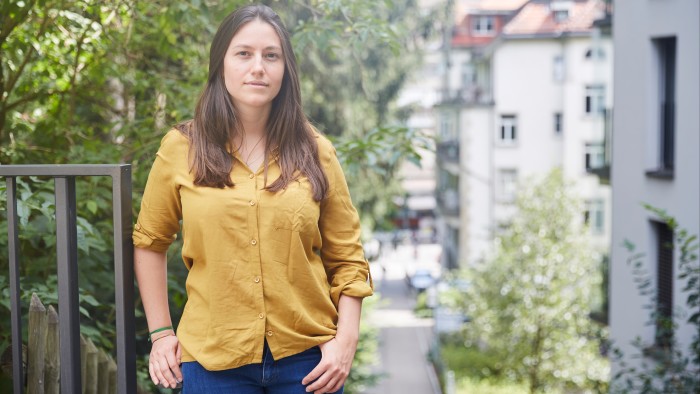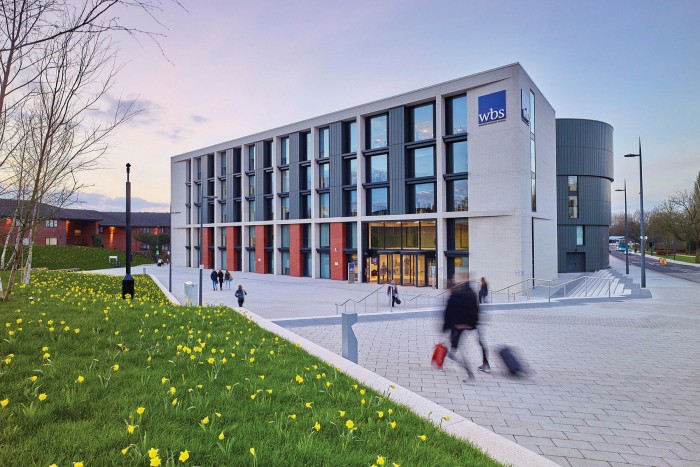Business schools learn to ‘do the right thing’ on sustainability

Simply sign up to the Sustainability myFT Digest -- delivered directly to your inbox.
Every year, students at the University of Stellenbosch Business School (USB) in Cape Town gain some unusual hands-on, off-campus experience of the pressures of managing a small business in a difficult environment. While their counterparts elsewhere often carry out projects to learn about profit generation, at USB the aim is a wider social one.
In a programme that began in the nearby low-income townships of the Cape Flats and has since expanded into Stellenbosch and the Eastern Cape, students work alongside local entrepreneurs to support and advise them.
“Students get to face the reality of a very small business in a poor environment, to think creatively about marketing products, scaling up, training, VAT registration and tax,” says Professor Piet Naudé, the school’s director.
“We simply can’t avoid the tough social questions of our time: poverty, inequality, corruption, global climate change,” he adds. “Business schools are normally seen as drivers of private good. We must promote that, but there are two other forms of good: social cohesion to protect democracy, and sustainability for public and global good.”
Masters in Management 2020 table — the top 90

Find out which schools are in our ranking of postgraduate management degrees. Find out how the table was compiled.
The project is one of a growing number in business schools with a focus on societal impact; it was part of a selection highlighted in the FT’s responsible business education project (ft.com/rbe). Many are initiated or led by students looking to build their skills and experience as they seek rewards beyond simply making money.
Help us redesign our rankings
We are seeking help from prospective business students as we develop new digital tools and content to assist readers make the best educational choices.
If you are willing to take part in our research, please complete this survey, which should only take 10 minutes.
Clémentine Robert is head of Oikos International, a network of students committed to embedding sustainability in economics and management teaching. She says that coronavirus and the Black Lives Matter movement are just the latest manifestations of broader pressures facing her generation, coming on top of the existential question of climate change. Robert argues that, driven partly by students, business schools are taking such concerns more seriously than in the past. One example is at Vienna University of Economics and Business, where a chapter of Oikos has been in discussions with faculty this year to integrate sustainability more broadly into the curriculum.
“More students are seeing it is key for them to have the skill set to navigate social, environmental and societal challenges,” she says. “We are not just asked for opinions, but our opinion is also more valued.”
Oikos was instrumental in supporting an innovative Positive Impact Rating for business school. The PIR is a Switzerland-based association whose founders include global NGOs. Oikos used students to evaluate 50 schools on the basis of their societal responsibility and impact. The evaluations called for schools to divest themselves of fossil fuels, reduce CO2 emissions and food waste, strengthen teaching beyond profit maximisation and prioritise gender parity.
The UN’s Principles for Responsible Management Education (PRME) urge business schools to broaden their range of courses, research and operational changes to reflect the UN’s Sustainable Development Goals. Accreditation agencies and some companies have also embraced the trend towards sustainability, though articulating precisely what should be done and measuring its impact is the subject of intense debate.
Not everyone is convinced about a shift to social responsibility, with many employers continuing to stress the primary value of “hard” skills. Some polls also suggest that the majority of students studying business prioritise high pay and employment with banks, investment funds and consultancies — if only to cover often substantial fees.
But a growing focus on social and environmental impact is undoubtedly taking place. Sometimes the nature of the local community influences how institutions respond. At Gustavson School of Business at the University of Victoria in Canada, the student commerce society has for several years offered one-on-one volunteer clinics to help local people on low incomes complete their tax returns.
Saul Klein, Gustavson’s dean, says: “We believe our graduates need to leave with a sense of responsibility: to themselves, their organisations, as leaders and more broadly to society. We build that understanding into all our programmes.” He says the school’s location on Canada’s west coast lends itself to a broader focus on social and sustainability issues, with both a pristine local environment and a connection to indigenous people with whom the university works in multiple ways around reconciliation, training and the development of managerial skills.
“It’s not just the morally correct thing to do, there’s a business logic,” he adds. “It builds stronger relations with customers, trust through employee engagement and in dealing with external stakeholders and regulators. ‘Doing the right thing’ is not only compatible with being successful but a requirement for it.”
Where business schools are slow to shift, says Robert, students can take the initiative themselves. Networks such as SOS International (Students Organizing for Sustainability) are focusing on sustainability, and UN PRME has developed an online carbon literacy training programme. She stresses Oikos itself supports social-related case studies for teaching. “We need to make sure teaching is adapted to the era we are living in,” she says.
Comments